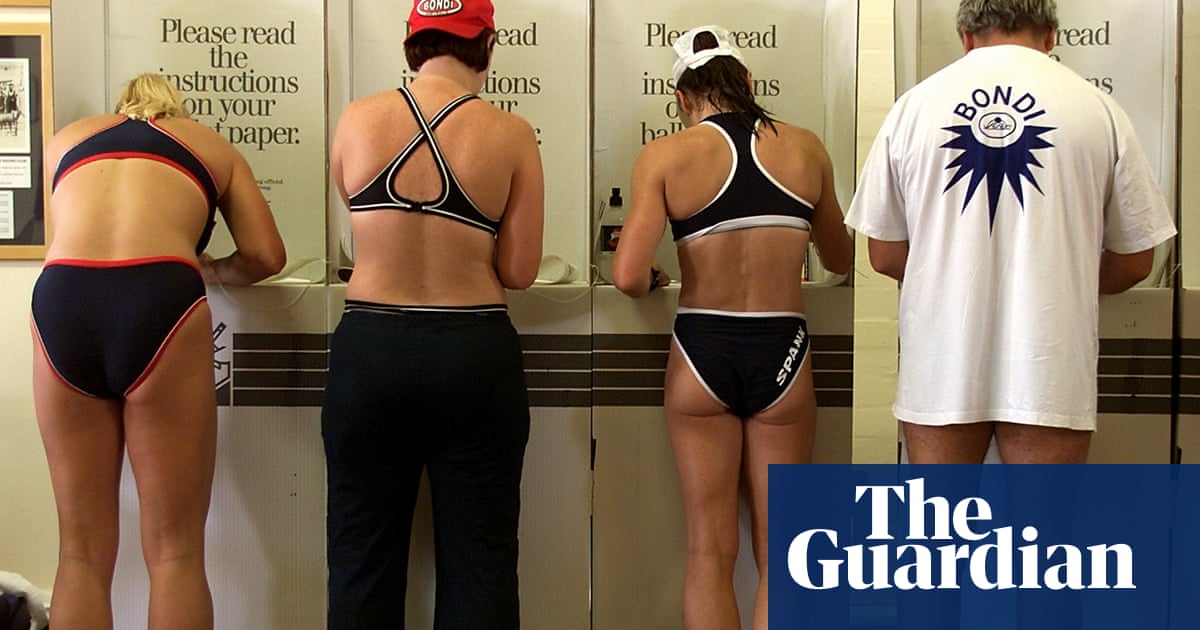Photo credit: www.theguardian.com
Australians take pride in their unique federal elections, characterized by compulsory voting laws that yield a remarkable turnout rate exceeding 90%. The country’s preferential voting system is designed to ensure no votes are wasted and every choice holds significance. Over recent years, the symbolism of civic duty has manifested in the “democracy sausage,” a common sight at schools that transform into polling stations, helping to raise funds on election Saturdays.
Another intriguing aspect of Australian politics is its rich campaign jargon, which is enthusiastically embraced by politicians and the media alike. This article explores some of the most distinctive terms you might encounter leading up to the upcoming federal election, where incumbent Anthony Albanese’s Labor Party faces off against Peter Dutton’s Liberal-National Coalition.
Rorts
Rorts are a point of contention among voters, who generally despise them, while politicians often use accusations of rorting as a weapon against each other. The term encompasses various unfair practices, particularly those where parties misuse taxpayer funds to gain electoral advantage, such as allocating community grants based on political affiliations rather than merit.
Historically, Australia has experienced multiple scandals involving rorts, including the infamous sports rorts scandal in the 1990s, and more recent controversies, like the carpark rorts of 2021. If a practice isn’t strictly illegal but appears morally dubious, it can be categorized as a rort.
Corflutes
During election season, corflutes—corrugated plastic signs—dominate the landscape of major streets across Australia. These signs serve to promote candidates and are ubiquitous in public spaces, from shopping centers to residential gardens. While these temporary signs are practical, many Australians view them as unsightly, leading to increasing calls for regulation.
Throughout this campaign, corflutes have become battlegrounds, often torn down, vandalized, or even set ablaze. In fact, one Australian state has moved to ban corflutes from public property, labeling them “visual pollution.”
Stoush
The term “stoush” has become a staple in media coverage of political disputes, capturing various forms of conflict ranging from lively debates to outright brawls. It can also refer to legal battles, policy disagreements, or any internal party strife. Even international disputes, such as the recent spat between Australia and Canada over Vegemite, have fallen under the umbrella of stoush.
Moreover, various corflute stoushes have erupted during this election cycle, further illustrating the heated atmosphere.
Spruiking
The term “spruiking,” potentially derived from the German word Spruch (meaning “saying”), has taken on a distinctly Australian flavor, signifying the act of promoting an idea or policy with enthusiasm.
In practice, politicians don’t merely announce policies; they “spruik” them. It’s a term that conveys both energy and flair in the political arena. However, it can also take on pejorative connotations, especially when politicians are criticized for being “quick to spruik but slow to act” or when they employ spruiking as a distraction from pressing issues.
Tradies
In Australian politics, portraying a connection with tradies—a colloquial term for tradespeople—is paramount for gaining favor among voters. Politicians often don high-visibility attire and hard hats to signal their alignment with this essential demographic, much like they would engage with families or communities.
One candidate has notably branded himself with the tagline: “Tradie. Soldier. Dad,” highlighting how much value is placed on this identity in campaigns.
Fake tradies
A noteworthy subset of tradies includes “fake tradies”—individuals who feign expertise in trades for the sake of political advertisements. This phenomenon gained notoriety during the 2016 Liberal party campaign when ads featuring unconvincing impersonations were widely ridiculed.
Voting informally
Beyond the attire, Australian elections are also marked by informal voting practices, though in a different sense. An informal vote occurs when a ballot is marked in an unconventional way, such as doodling rather than ranking candidates appropriately, which can hilariously include drawings of inappropriate symbols.
Donkey vote
A donkey vote reflects indifference towards electoral choices, with voters numbering candidates sequentially without discernment. This practice emanates from a desire to avoid penalties for not voting, often starting at the top of the ballot and proceeding down without consideration for individual candidates’ merits.
The term “donkey vote” is thought to be a derogatory reference, implying foolishness—a contrasting sentiment to the more nuanced landscape of Australian politics.
Source
www.theguardian.com

